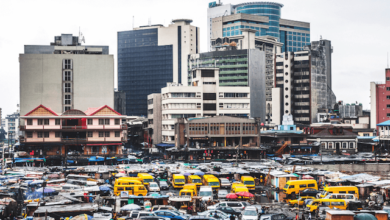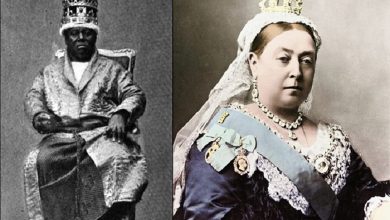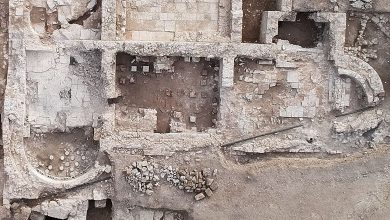Yoruba famous traditional festivals
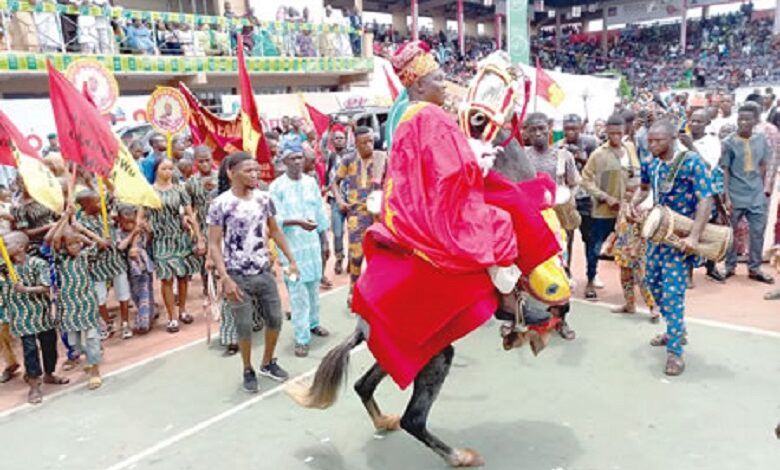
Festivals are a considerable part of Nigerian culture, held with great pomp and pageantry. Festivals are a way to showcase the country’s rich cultural heritage as well as the traditions of Nigeria ethnic groups, which major ethnicities are Hausa, Igbo, and Yoruba.
The land of the Yoruba has a prosperous and diverse cultural heritage. The richness of Yoruba culture in Nigeria can be seen and experienced at its festivals. These festivals attract Nigerians living in foreign countries, spectators, and tourists from all over the world. Some of these festivals have even been modernizing by the government to increase revenue from tourism.
These festivals incorporate music, masquerades, dance, fashion, and food, allowing visitors to join in and experience Yoruba culture firsthand.
Some of Yoruba famous festivals
1. Oro festival
The Festival of Oro is a traditional annual Yoruba event usually celebrated in July. The festival lasts several days, and during it, women and others who do not participate must stay indoors. Several sources commented on various aspects of the event.
Its report that “traditionally,” Yoruba leaders ask people who are not associated with the event to stay indoors. A masquerade takes place through the streets of the cities night. PANA referred to the age-old Yoruba belief that a woman should never see Oro. The double mask wore among the Yoruba in connection with ceremonies or dances of secret societies, mainly Egungun or Oro.”
2. Osun-Osogbo festival
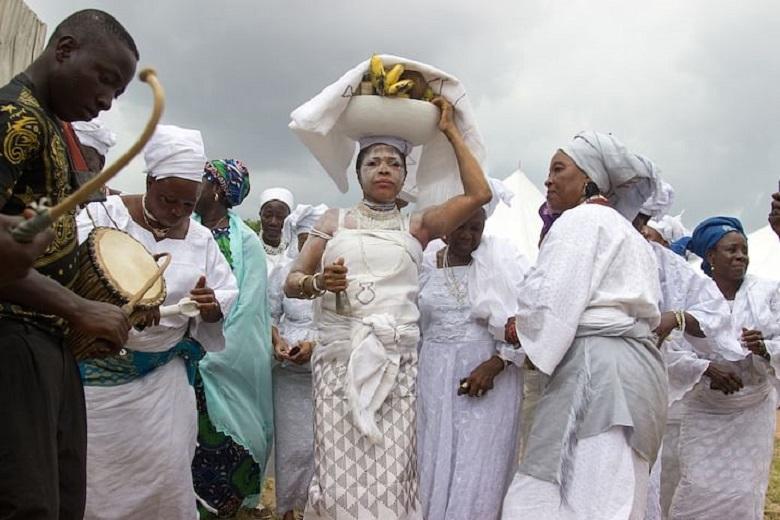
The Osun-Osogbo festival, held in August of every year in Osogbo, Nigeria, celebrates the fertility goddess Osun. The celebration renews the pact between humans and the divine: Osun offers grace to the community; in return, she vows to honor her Sacred Grove.
This ceremony is part of the rich indigenous Yoruba religious tradition. The sacred forest on the outskirts of Osogbo is considered one of those forests where “Orisha,” the spirit that they believe blesses them, reveals itself. Devotees are lead by a virgin maiden named Arugba, who links the community and the deity. The pure girl directs all the sacrifices offered in the river. The Arugba (maiden-deva) carries all the sacrifices (flowers, honey, gold, etc.) of the community and all present. Tradition dictates that these sacrifices offer in a large calyx. Before all this takes place, the worshippers offer a special prayer in the priestess’ shrine.
3. Igogo festival
The festival is an annual festival that takes place in Owo, every month September of every year. It takes a total of seventeen days and includes a series of ceremonies, including the blessing and the introduction of the new yam. The festival conducts in memory of the king’s wife, who transformed into a tree, chased by the king’s slave to come back to the palace after her opponent violated her taboo in her presence.
During the celebration period, drums forbid in Owo, and metal gongs (agogo) use instead; hence the word “Igogo.” The Olowo ”, which during this period is dressed in a coral beaded dress, braids her hair like a woman. The festival intends to foster the broader involvement of the community’s youth in its cultural norm.
4. Sango festival
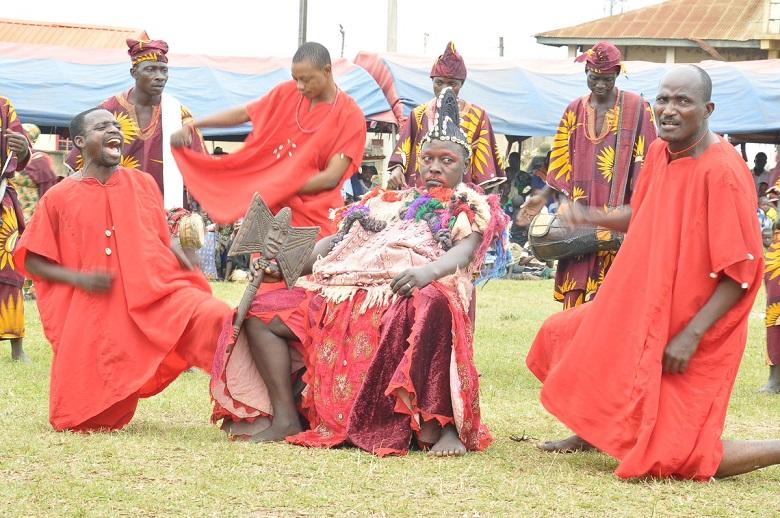
It is a designated day used to celebrate Sango, a popular Yoruba deity who believed in having supernatural powers.
The festival was renamed World Sango Day by Oyo State’s government to sign its international celebration. The occasion welcomes visitors from all the country and followers from other countries such as Cuba, Brazil, and the Caribbean.
Sango was the third Alaafin-king of the old Oyo empire. He took over power from his brother Ajaka, who was considered weak. During his reign, he constantly fought battles with other cities. He mistakenly destroyed his palace with lightning, leading to the end of his power.
He ruled the kingdom of Oyo for seven years and married three wives, Oya, Oba, and Oshun. He is worshipped on the fifth day by the name Ojo Jakuta. His followers like to wear red attire, which was his popular attire.
Sango is often called the God of Thunder.
5. Eyo festival
The Eyo Festival, also commonly known as the Adamu Orisha Piece, is a unique Yoruba festival in Lagos, Nigeria. Nowadays, it presents Lagos’s people as a tourist event and is often holds on Lagos’ island because of its history.
Eyo is a masquerade that only comes out on the island of Lagos. It belives to symbolize the spirits of the ancestors. The festival of Eyo may hold in honor of a chief or elder of the ruling family or a deceased Oba. It may also perform when a new head of the Iga (palace) or a new Oba is installed.
With the advent of westernization and modernization, the governor or political leader may also request that the festival organizes to add color to the occasion for a fee. Eyo is customarily holding on a Saturday.
6. Ojude Oba festival
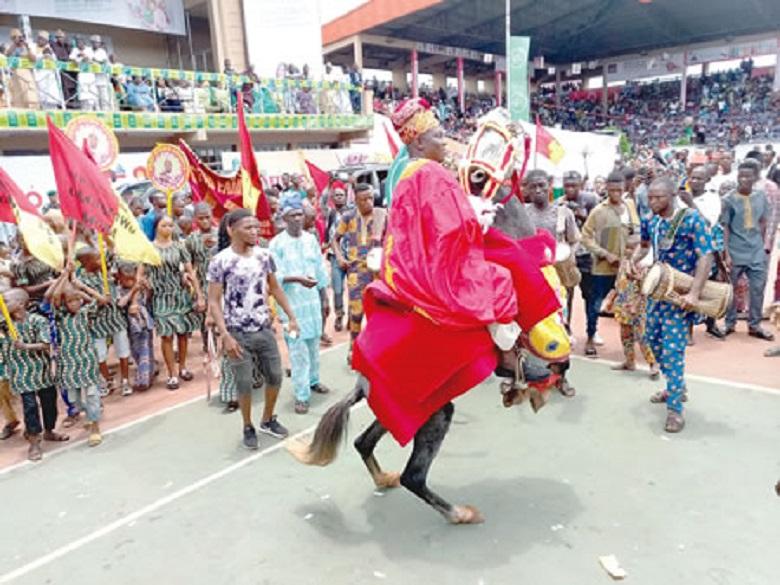
Ojude Oba festival is held annually, usually three days after the beginning of Eid-el -Kabir. Usually, two days before the Ojude Oba festival, Muslims celebrate Eid with their families, friends, and well-wishers. On the third day, Christians, tourists, dignitaries, and guests join them at the Awujale’s Palace. Witness the festival’s splendor, which aims to celebrate the rich culture and heritage of the Ijebu-Ode people.
They celebrate with magnificent traditional outfits, elaborate hairstyles, food (Ifokore), and recreations of rare cultural dances and spectacular horseback riding, reminiscent of the north’s Durbar Festival.
7. Olojo festival
The Olojo Festival is a famous annual festival in Ile-Ife in Osun State. The event is the celebration of Ogun, the god of Iron. The Yoruba people believe that Ogun is the first son of Oduduwa. Oduduwa is considered the progenitor of the Yoruba race. The day of the holiday Olojo, which can translate as “Master of the Day,” refers to the day of the year that Olodumare (i.e., the creator of the universe) specifically blessed.
The Ooni, king of Ile-Ife, appears in public on this day with the Crown of Are (i.e., the King’s Crown) after several days in seclusion. The Ooni will visit various shrines to offer prayers for peace in Yoruba lands and Nigeria. Ile Ife sees as the or origin of the Yoruba race. And so, this holiday is highly regarded as a celebration of the Yoruba coalition.
8. Egungun Festival
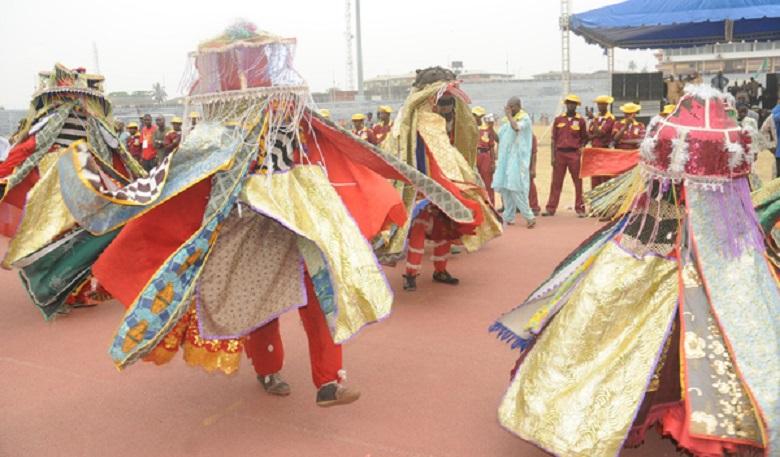
Egungun Festival is held annually from November to April when it does not rain. It is common in Egbas, Egbados, Oyo, and other areas of southwestern Nigeria. This festival believes in promoting unity in the Yoruba community while encouraging positive behavior in the community.
Egungun is also known as the Yoruba land’s disguised ancestor, assuring people that the dead are alive. The feast begins when the chief priest of Egungun masquerade invokes the ancestors’ spirit. An act is known as “Alapi,” which performs when the Egungun masquerade and worshipers dance, drum, and possess by the ancestors’ spirit. The Egungun masquerade wears colorful kingship and whips anyone who gets in the way of the spirits.


